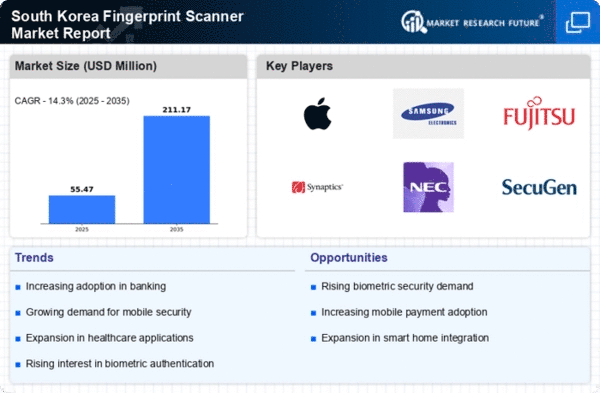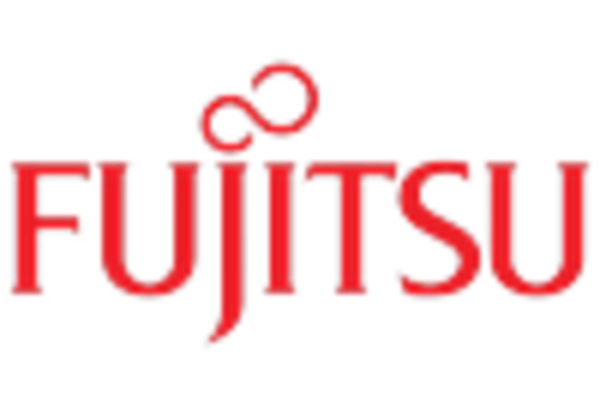Growing Adoption in Financial Services
The fingerprint scanner market is witnessing a growing adoption in the financial services sector in South Korea. Banks and financial institutions are increasingly implementing biometric authentication to secure transactions and protect sensitive customer information. This shift is driven by the need to combat fraud and enhance customer trust. By 2025, it is projected that around 60% of financial institutions will utilize fingerprint scanners as part of their security protocols. The fingerprint scanner market is thus likely to expand as financial services recognize the value of biometric solutions in safeguarding their operations.
Regulatory Support for Biometric Technologies
Regulatory support for biometric technologies is emerging as a key driver for the fingerprint scanner market in South Korea. The government is actively promoting the use of biometric systems to enhance national security and streamline identification processes. Recent policies have encouraged the adoption of fingerprint scanners in various sectors, including healthcare and law enforcement. This regulatory environment is expected to foster innovation and investment in the fingerprint scanner market. By 2025, the market is anticipated to grow significantly as compliance with new regulations drives the integration of biometric solutions across multiple sectors.
Increased Investment in Smart City Initiatives
The fingerprint scanner market in South Korea is benefiting from increased investment in smart city initiatives. As urban areas evolve into smart cities, the need for advanced security systems becomes paramount. Fingerprint scanners are being deployed in various public spaces, including transportation hubs and government buildings, to enhance security and streamline access control. In 2025, the South Korean government is expected to allocate approximately $500 million towards smart city projects, which will likely include biometric security solutions. This investment is poised to drive growth in the fingerprint scanner market as cities prioritize safety and efficiency.
Rising Demand for Biometric Security Solutions
The fingerprint scanner market in South Korea is experiencing a notable surge in demand for biometric security solutions. This trend is largely driven by increasing concerns over data privacy and security breaches. As organizations and individuals seek to enhance their security measures, the adoption of fingerprint scanners is becoming more prevalent. In 2025, the market is projected to grow at a CAGR of approximately 15%, reflecting a robust shift towards biometric authentication methods. The fingerprint scanner market is thus positioned to benefit from this heightened awareness and demand for secure access control systems.
Integration of Fingerprint Scanners in Smart Devices
The integration of fingerprint scanners in smart devices is a significant driver for the fingerprint scanner market in South Korea. With the proliferation of smartphones and tablets, manufacturers are increasingly incorporating biometric authentication features to enhance user experience and security. In 2025, it is estimated that over 70% of new smartphones will feature integrated fingerprint scanners. This trend not only boosts the market but also encourages innovation in scanner technology, as manufacturers strive to improve accuracy and speed. The fingerprint scanner market is likely to see substantial growth as consumer preferences shift towards devices that offer advanced security features.















